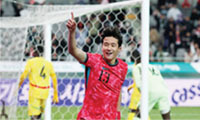▶ Francis’ Gift to Catholics
No one had died. No one was getting married or baptized. This visit was entirely volitional . and, I told myself, ornamental, which was true to a point.
The church, you see, was St. Peter’s Basilica. I was The Times’s correspondent in Rome. And because I covered the Vatican, I had dibs on prime seats relatively close to the altar. Forgive the following mixture of profane and sacred, but you don’t have to be a Beyonce devotee to say a quick yes to free tickets in the front rows. You go for the pageant and the privilege.
Pope John Paul II presided over the Mass, as best he could. He struggled to form coherent words, a man disintegrating before the world’s eyes, month by painful month. Many of us in the press corps who kept tabs on him and trailed him . to Guatemala, to Croatia, to Poland . were essentially on a deathwatch.
And some of us occasionally wondered if that vigil extended beyond him, to the Roman Catholic Church itself, and if he were both man and metaphor. Especially in Western Europe and the United States, the church was sliding into a sort of obsolescence.
It often resisted engagement with modernity. It denounced sin in the world while indulging it in the priesthood. And it spoke with a censoriousness that seemed antithetical to Christianity.
After John Paul came Benedict; little changed. More and more of the Catholics I knew located their faith as far outside of the Vatican as they could.
Now there’s Francis. And things are different. Not different enough, not by a long shot. The church remains wrong on women and wrong on gays, and I’ve noted repeatedly the shameful discrepancy between Francis’ kind words and the unkind firings of lesbian and gay employees by Catholic institutions in the United States.
But almost two years into his papacy, it’s impossible to deny the revolutionary freshness of his posture: humble, receptive, even casual. The pomp is gone and, with it, the air of thundering judgment. If the rules haven’t been rewritten, they seem less like bludgeons than in the past.
Francis doesn’t hold himself high, an autocrat with all the answers. He crouches to a level where questions can be asked, conversations broached, disagreements articulated.
He insists that other church leaders lower themselves as well, and used a traditional Christmas address on Monday not to chide the flock for its transgressions but to remind the shepherds of theirs.
He accused some of the cardinals, bishops and priests in the upper echelons of the church bureaucracy of straying so forgetfully from their true mission and ministry that they were afflicted with a kind of “spiritual Alzheimer’s.”
He said that they had fallen prey to the “pathology of power” and needed to beware the “terrorism of gossip.” All in all, the Vatican as described by Francis sounded like an Aaron Spelling drama, although with looser-fitting clothes, odder hats and lower Nielsen ratings.
By taking the church out of the clouds, he’s putting it into the fray. All accounts of the recent rapprochement between the United States and Cuba cast Francis as a key player, and that’s more than a diplomatic victory. It’s an assertion of the church’s sustained relevance.
He’s also putting the church within reach of those who would rather find a place for it in their lives than have to figure out a life without it. They are many.
I’ve never been able to believe in one dogma, one institution, as a possible repository for all truth and as a compass trumping any other. And I’ve been troubled by the frequency with which individual religions divide rather than unite. The Catholic Church has certainly been guilty of this.
But it has also done, and continues to do, enormous good. Its soldiers are present at almost every humanitarian crisis, their courage and caring inextricable from the best strands of the faith.
That faith provides many pilgrims with a harbor they can’t find elsewhere. They look to it not necessarily for a precise code of conduct but for a crucial inspiration to be less selfish, more charitable. It gives them a sorely needed peace, so long as they don’t feel shoved away.
By not shoving, Francis is serving them well. By not shouting, he’s being heard.
In St. Peter’s this Christmas Eve, he’ll be at center stage. Except he won’t, in another sense, because he’s redefined his role. If I were in the pews once again, it wouldn’t be to savor the spectacle. It would be to see the man.
스마터리빙
more [ 건강]
[ 건강]이제 혈관 건강도 챙기자!
[현대해운]우리 눈에 보이지 않기 때문에 혈관 건강을 챙기는 것은 결코 쉽지 않은데요. 여러분은 혈관 건강을 유지하기 위해 어떤 노력을 하시나요?
 [ 건강]
[ 건강]내 몸이 건강해지는 과일궁합
 [ 라이프]
[ 라이프]벌레야 물럿거라! 천연 해충제 만들기
 [ 건강]
[ 건강]혈압 낮추는데 좋은 식품
[현대해운]혈관 건강은 주로 노화가 진행되면서 지켜야 할 문제라고 인식되어 왔습니다. 최근 생활 패턴과 식생활의 변화로 혈관의 노화 진행이 빨라지고
사람·사람들
more많이 본 기사
- 메디케이드·식량·주거 보조 이용… 영… 1
- 한인 마켓도 덮친 ‘대대적 이민 단속’
- 아이폰 있으면 국내선 여권 불필요
- [화제] 동명이인도 ‘깜짝’ … 스크래치 100만달러 잭팟
- 손흥민, ‘임신 협박 3억 갈취’ 20대女 재판에 ‘증인 출석’... 50분간 비공개 신문
- ‘이경실 子’ 손보승, 군 복무기간 중 ‘달걀 판매’ 영리활동..징계 대상자 되나?
- 한인타운 올림픽·버몬트 총격 사건
- 푸드스탬프 재신청 의무화 추진 300여만명 식비지원 상실 위기
- “무너진 캘리포니아 재건하겠다”
- 고개 숙인 일본, 주머니에 손 넣은 중국
- “티켓은 비자아냐”
- 메디케이드 받으면 영주권 신청 거부된다
- 22기 뉴욕평통 출범식⋯“힘찬 출발”
- ‘트럼프 신속대응팀’ 비판에 연방 법무부 내부 ‘흔들’
- [송년모임] 호남 향우회 내달 16일
- [송년모임] 월남전 참전자회 내달 14일
- LA 곳곳 ‘폭우 후유증’… 타운도 팟홀 몸살
- 영국 학교, 케데헌 ‘금지령’… “기독교와 맞지 않아”
- 팽팽한 피부·부푼 입술… “워싱턴 대세 성형스타일은 ‘마가 여성’”
- 맥도널드, 연말 인기메뉴 ‘맥립’ 출시
- 이젠 프리웨이도 달리는 웨이모
- 소콜리치 포트리 시장 사랑의 터키 재단에 후원금
- 사진작가 제이 안, 뉴욕한인회관서 개인전 예정
- 서울대 뉴욕북클럽 정기토론회
- 한국·캔자스 운전면허 상호인정… 가주는 ‘깜깜’
- ‘호객 없는 수산시장’… 제철 맞은 방어, 새우 먹으러 울진 간다
- 계속되는 민주당의 헛손질
- “한인사회를 섬기는 최고의 의료그룹 SMG”
- ‘노재팬’ 나선 中 여행객들, 대신 우르르 한국행
- 사유리, 5세 子 외국인 학교 보냈다 “다 영어로 대화..기 죽어”
- [경제 트렌드] “거스름 줄 동전이 없어”… 1센트 폐지 혼란
- 애쉬번서 충전중인 배터리서 불…120만불 피해
- 의회, ‘엡스타인 파일 공개 법안’ 가결…트럼프 서명만 남아
- “소득대비 과도 공제… IRS 감사타겟 될 수도”
- 트럼프, ‘7년만의 방미’ 사우디 빈살만에 오·만찬 ‘국빈급예우’
- ‘♥이용대 열애설’ 에이프릴 윤채경, 소나무 같은 취향? “이상형은 이민호”
- 슬기로운시니어생활 43회
- 트럼프, 공화 장악력 약화… ‘셧다운 핵옵션·엡스타인’ 파열음
- AI 확산에 올해 일자리 110만개 사라져
- ‘200억 매출’ 진재영, 김치 사업 도전하나.. “혼자 할 수 있을지 모르겠지만”
- 한인 대형교회 전도사 113만불 횡령 ‘발칵’
- 사우디 빈살만 “1조불 투자”…트럼프… 1
- FIT서 주요 무형유산 시연 웍샵
- 교황, 트럼프 이민정책 거듭 비판… “극도로 멸시적인 대우”
- 이탈리아 축구, 3회 연속 월드컵 본선 탈락 위기 ‘악몽’
- 대한민국재향군인회 신상태 회장 초청 모임
- 성범죄자에 ‘불륜 상담’ 하버드 전총장 활동중단
- [미국은 지금] 미국 정치의 파산과 그 댓가
- VA 주지사 인수인계 ‘삐걱’…UVA 총장 선임 ‘격돌’
- 사라진 백악관의 이스트 윙
1/5지식톡

-
 테슬라 자동차 시트커버 장착
0
테슬라 자동차 시트커버 장착
0테슬라 시트커버, 사놓고 아직 못 씌우셨죠?장착이 생각보다 쉽지 않습니다.20년 경력 전문가에게 맡기세요 — 깔끔하고 딱 맞게 장착해드립니다!장착비용:앞좌석: $40뒷좌석: $60앞·뒷좌석 …
-
 식당용 부탄가스
0
식당용 부탄가스
0식당용 부탄가스 홀세일 합니다 로스앤젤레스 다운타운 픽업 가능 안녕 하세요?강아지 & 고양이 모든 애완동물 / 반려동물 식품 & 모든 애완동물/반려동물 관련 제품들 전문적으로 홀세일/취급하는 회사 입니다 100% …
-
 ACSL 국제 컴퓨터 과학 대회, …
0
ACSL 국제 컴퓨터 과학 대회, …
0웹사이트 : www.eduspot.co.kr 카카오톡 상담하기 : https://pf.kakao.com/_BEQWxb블로그 : https://blog.naver.com/eduspotmain안녕하세요, 에듀스팟입니다…
-
 바디프렌드 안마의자 창고 리퍼브 세…
0
바디프렌드 안마의자 창고 리퍼브 세…
0거의 새제품급 리퍼브 안마의자 대방출 한다고 합니다!8월 23일(토)…24일(일) 단 이틀!특가 판매가Famille: $500 ~ $1,000Falcon: $1,500 ~ $2,500픽업 & 배송직접 픽업 가능LA…
-
 바디프렌드 안마의자 창고 리퍼브 세…
0
바디프렌드 안마의자 창고 리퍼브 세…
0거의 새제품급 리퍼브 안마의자 대방출 한다고 합니다!8월 23일(토)…24일(일) 단 이틀!특가 판매가Famille: $500 ~ $1,000Falcon: $1,500 ~ $2,500픽업 & 배송직접 픽업 가능LA…
케이타운 1번가
오피니언
 정숙희 논설위원
정숙희 논설위원사라진 백악관의 이스트 윙
 파리드 자카리아 워싱턴포스트 칼럼니스트 / CNN ‘GPS’ 호스트
파리드 자카리아 워싱턴포스트 칼럼니스트 / CNN ‘GPS’ 호스트 계속되는 민주당의 헛손질
 김동찬 시민참여센터 대표
김동찬 시민참여센터 대표 [미국은 지금] 미국 정치의 파산과 그 댓가
 성영라 수필가 미주문협 부이사장
성영라 수필가 미주문협 부이사장 [수요 에세이] 부석사, 배흘림기둥에 기대어 보다
 서정명 / 서울경제 논설위원
서정명 / 서울경제 논설위원[만화경] ‘국부론’과 “기업이 곧 국력”
 노세희 부국장대우·사회부장
노세희 부국장대우·사회부장 대한은 다시 살아나는가
 민경훈 논설위원
민경훈 논설위원사자와 생쥐, 그리고 인간 이야기
 한형석 사회부 부장대우
한형석 사회부 부장대우 한인타운 교통 인프라 개선 기대
 박영실 시인·수필가
박영실 시인·수필가 [화요칼럼] 말의 위력
1/3지사별 뉴스

22기 뉴욕평통 출범식⋯“힘찬 출발”
22기 민주평화통일자문회의 뉴욕협의회(회장 이시화)는 17일 퀸즈 플러싱 소재 코리아빌리지 디모스 연회장에서 자문위원 173명을 비롯한 한인사…
메디케이드 받으면 영주권 신청 거부된다

VA 주지사 인수인계 ‘삐걱’…UVA 총장 선임 ‘격돌’
버지니아 글렌 영킨(Glenn Youngkin, 공화, 사진 왼쪽) 주지사와 내년 1월 취임하는 아비가일 스팬버거(Abigail Spanber…
북VA 불법 마사지업소 260곳 넘는다

사우디 빈살만 “1조달러 투자”…7년만의 방미환대 트럼프에 선물
사우디아라비아가 18일 대미 투자액을 기존에 발표했던 6천억 달러(약 876조원)에서 1조 달러(약 1천460조원) 규모로 상향 조정하기로 했…
방한후 美입국했다 석연찮게 구금된 한인과학자, 4개월만에 석방

오늘 하루 이 창 열지 않음 닫기 




















































.png)


댓글 안에 당신의 성숙함도 담아 주세요.
'오늘의 한마디'는 기사에 대하여 자신의 생각을 말하고 남의 생각을 들으며 서로 다양한 의견을 나누는 공간입니다. 그러나 간혹 불건전한 내용을 올리시는 분들이 계셔서 건전한 인터넷문화 정착을 위해 아래와 같은 운영원칙을 적용합니다.
자체 모니터링을 통해 아래에 해당하는 내용이 포함된 댓글이 발견되면 예고없이 삭제 조치를 하겠습니다.
불건전한 댓글을 올리거나, 이름에 비속어 및 상대방의 불쾌감을 주는 단어를 사용, 유명인 또는 특정 일반인을 사칭하는 경우 이용에 대한 차단 제재를 받을 수 있습니다. 차단될 경우, 일주일간 댓글을 달수 없게 됩니다.
명예훼손, 개인정보 유출, 욕설 등 법률에 위반되는 댓글은 관계 법령에 의거 민형사상 처벌을 받을 수 있으니 이용에 주의를 부탁드립니다.
Close
x